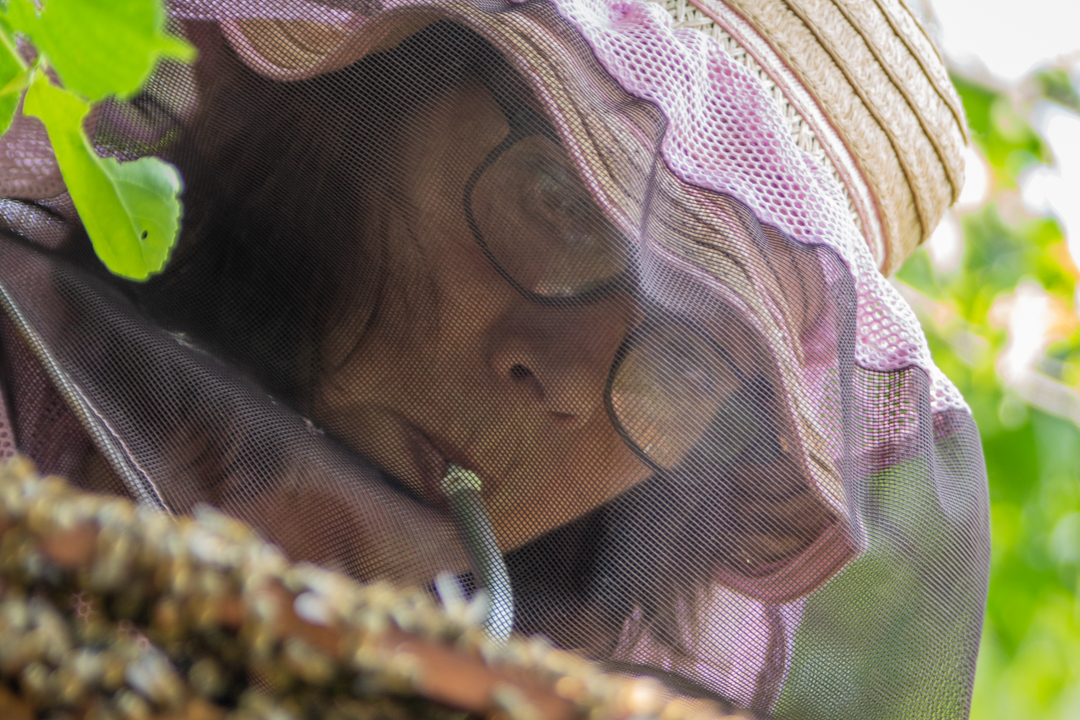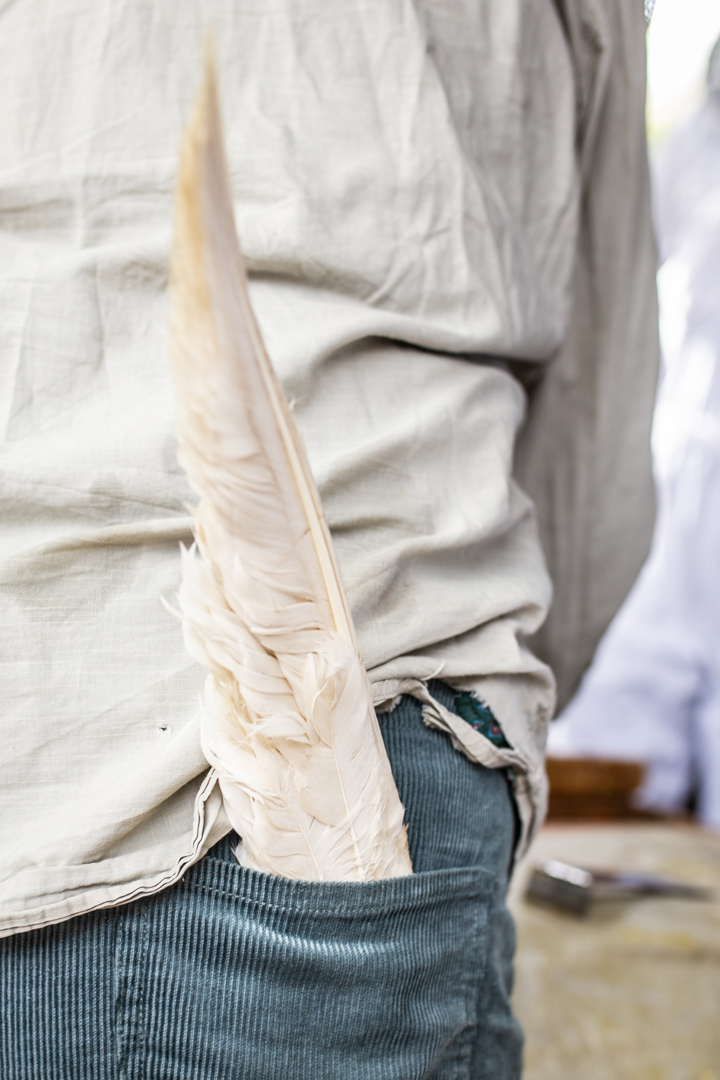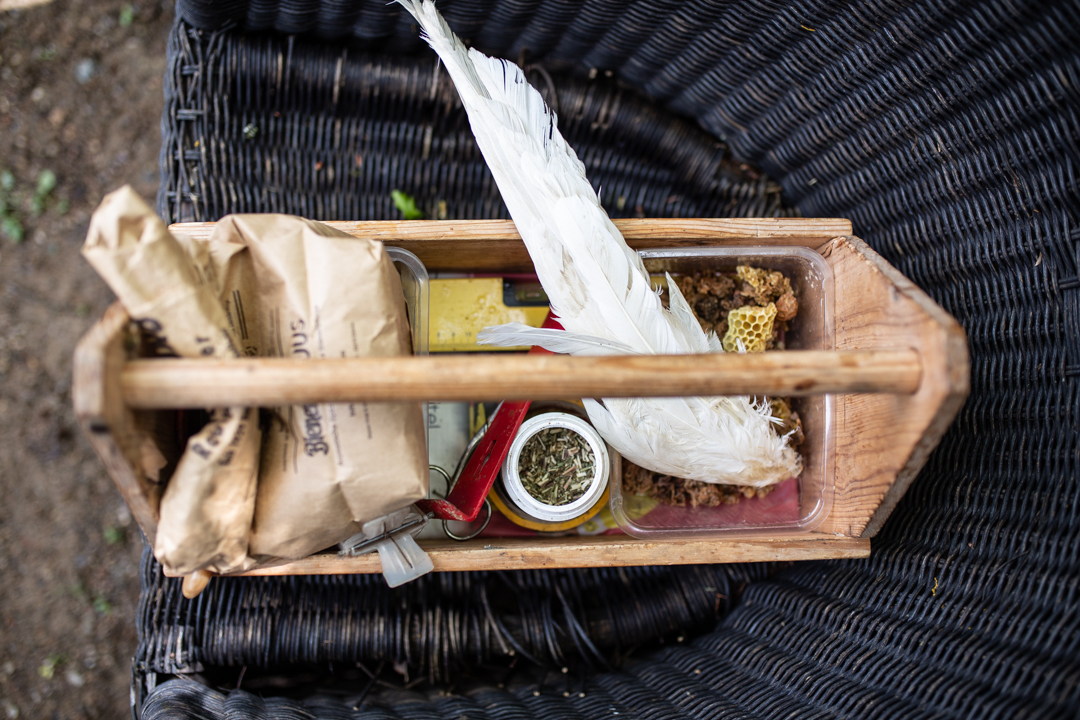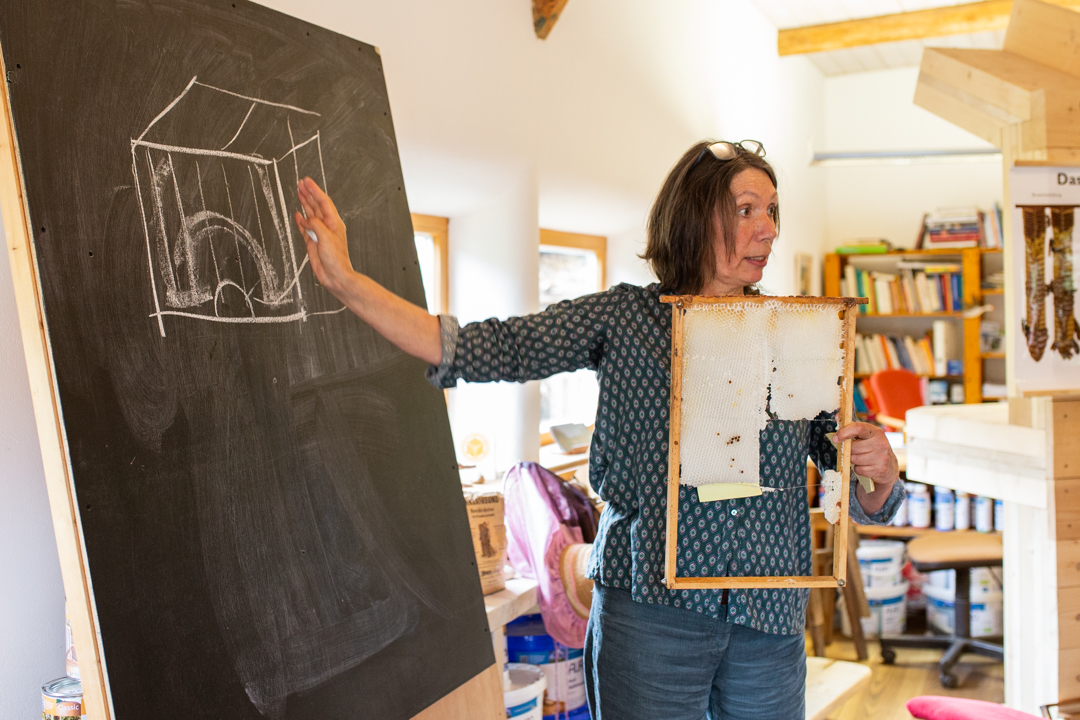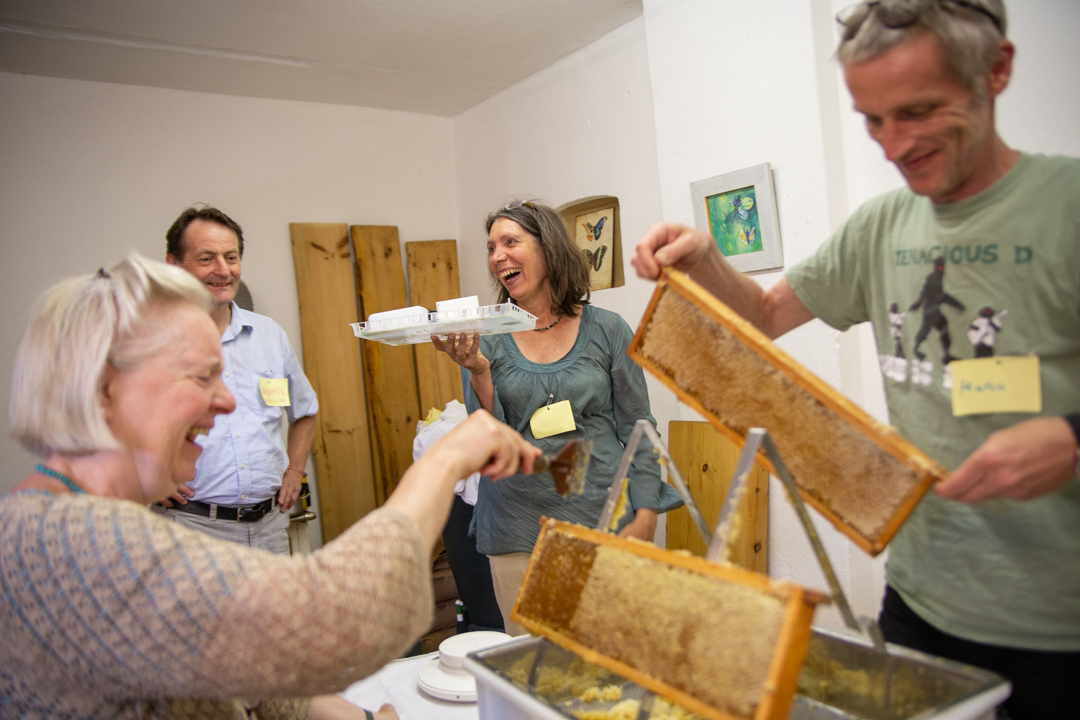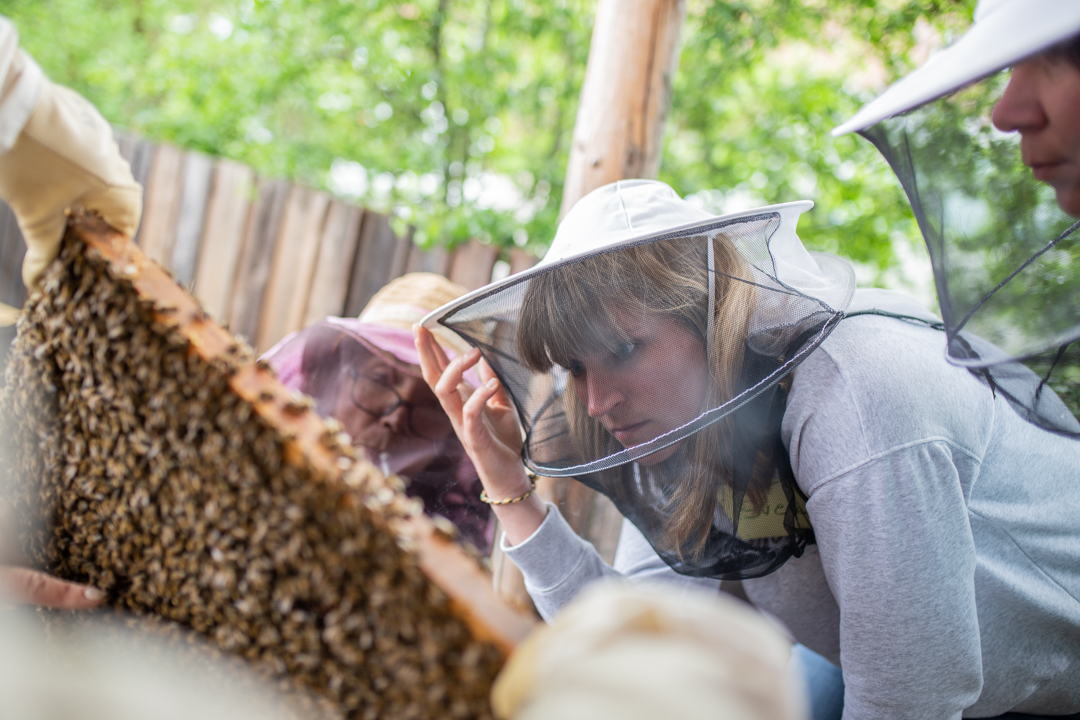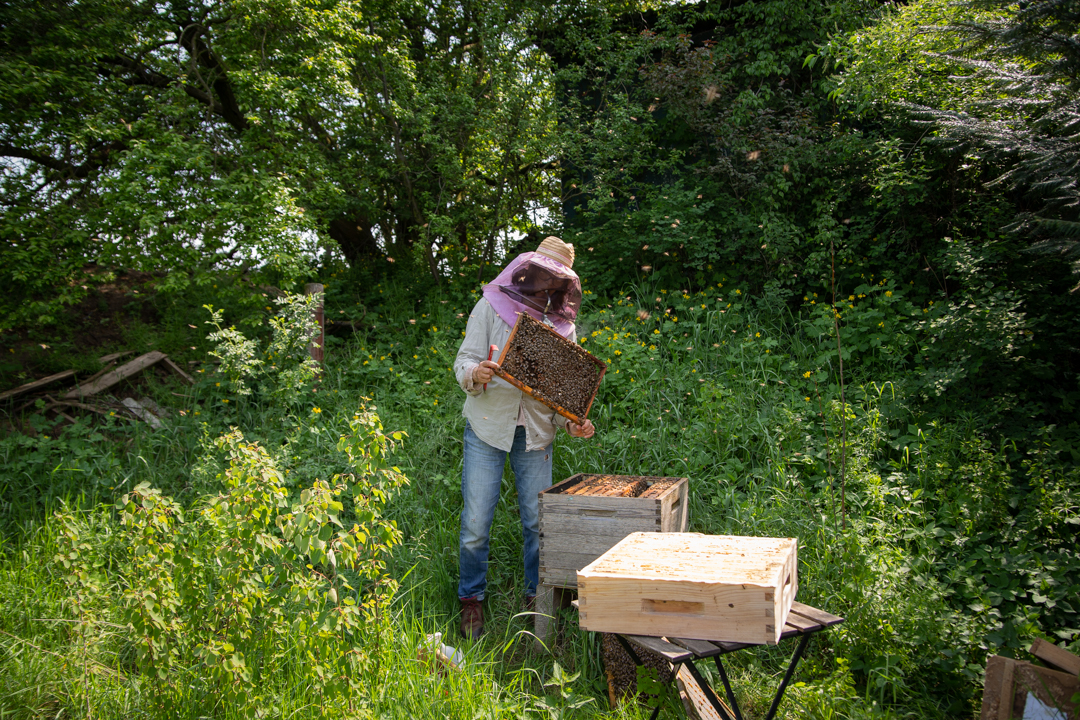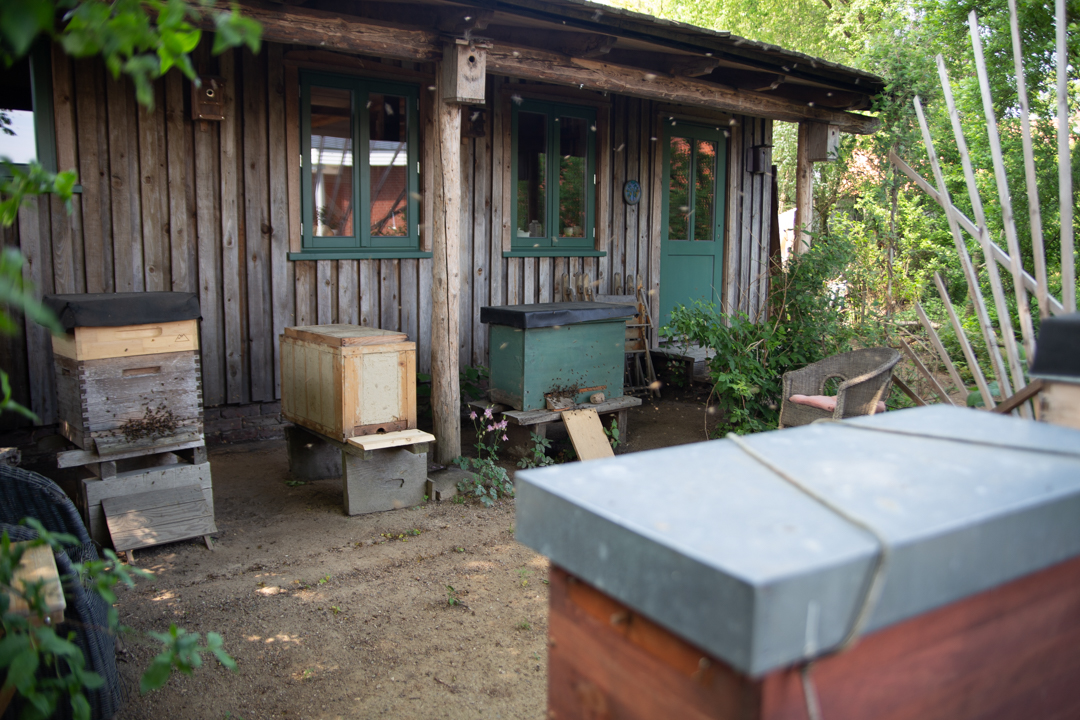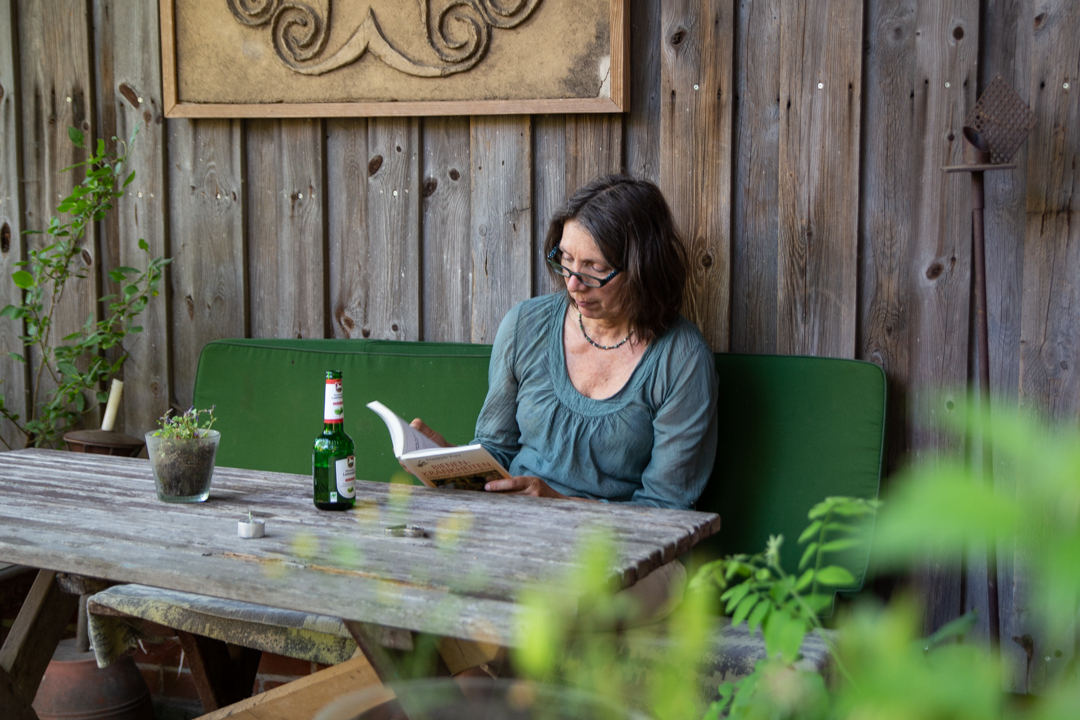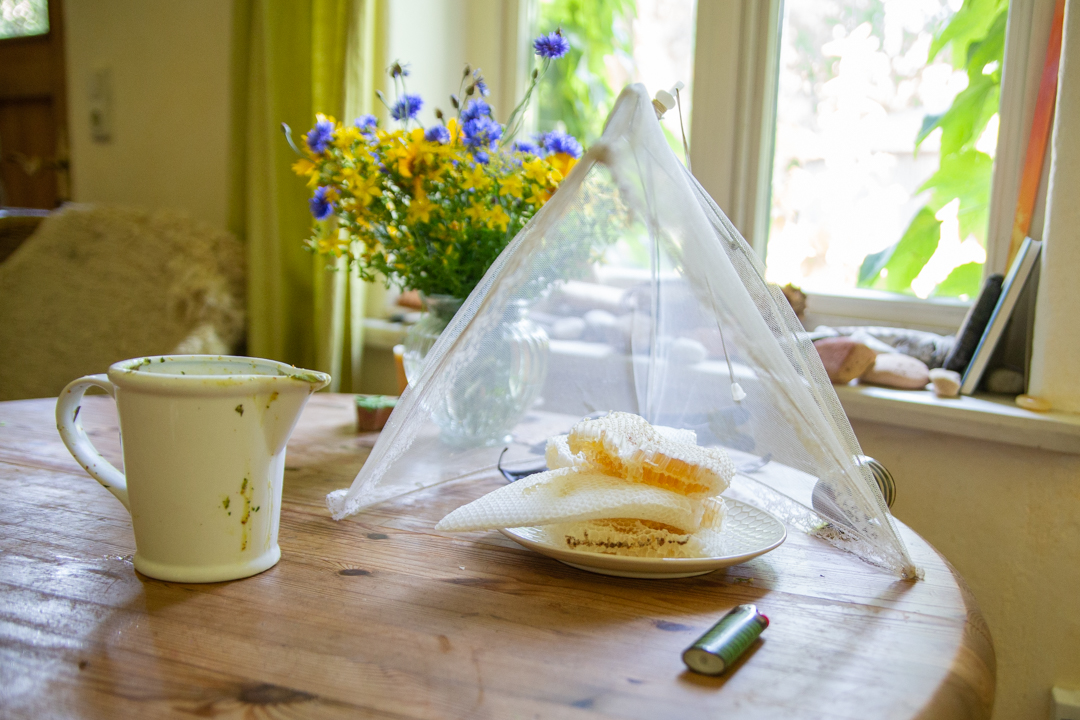Beekeeping according to nature (2019)
The importance of saving endangered species from extinction and preserving the biodiversity of this earth is undisputed. The honey bee is not threatened with extinction, but it cannot survive without beekeepers. Their disappearance would have far-reaching consequences, as much depends on their pollination. Not only would honey disappear from our food list, but fruit and vegetable harvests would also be drastically reduced. It is estimated that 80 percent of flowering plants are pollinated by insects and 85 percent of these are pollinated by honeybees alone. Agricultural production would also suffer, and affected diets and vitamin deficiencies could lead to increased disease risks for us. Conventional, high-yield beekeeping harms the bee population in addition to other environmental impacts such as climate change, large-scale monocultures, and agricultural chemicals.
Beekeeping according to nature offers the honey bees a natural way of keeping them. With traditional craftsmanship, time-honored tools and in harmony with nature, beekeepers create a natural habitat for the little animals and make beekeeping sustainable and species-appropriate. Marina Kliewer from Lüneburg has been working in this way for a long time. In beekeeping courses, she passes on her extensive knowledge about the animals and nature-appropriate husbandry to interested parties.




